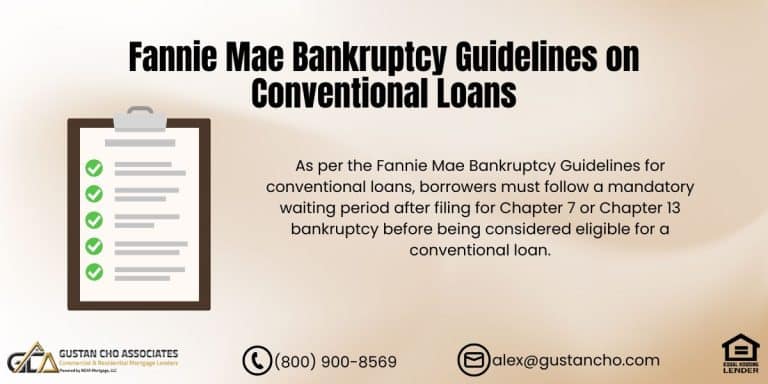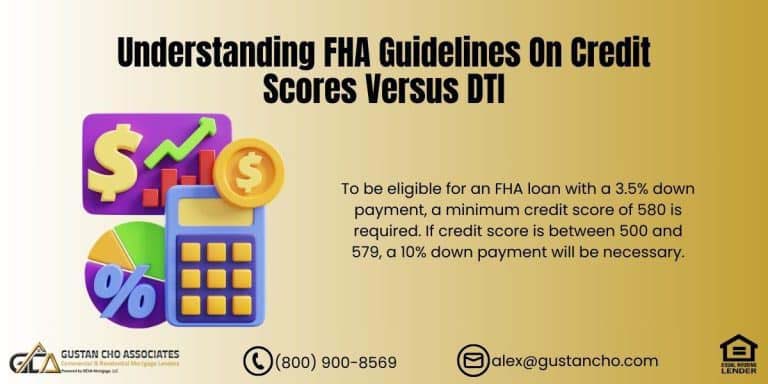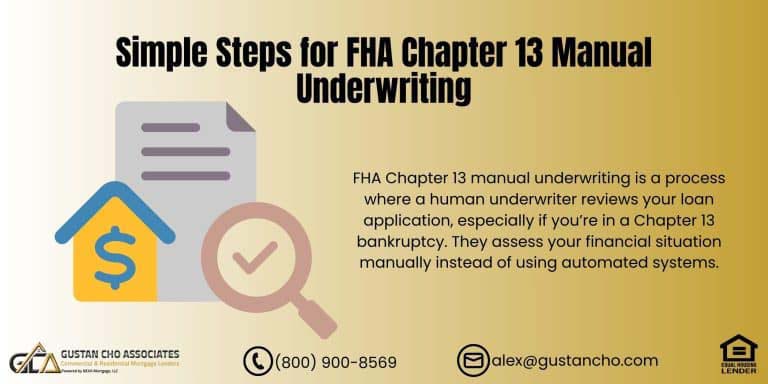Buying a home starts with one question: what mortgage can you qualify for with your credit score—and what will it cost you? Credit score mortgage guidelines affect two things right away: approval (which loan programs you can use) and pricing (your rate and monthly payment).
This guide breaks down FHA, VA, Conventional, and Non-QM rules in plain English, using the score bands lenders see most often: 500–579, 580–619, 620–679, 680–739, and 740+. You’ll learn what down payment is typically required, what triggers a manual underwrite, how lenders pull your “mortgage FICO,” and which fast credit moves can add points before you apply.
To achieve the shortest path to approval, focus on two key factors: maintaining a clean recent payment history and keeping low credit card utilization. Those two factors often decide whether you get an automated approval—even more than your “app score” from a banking app.
Key Takeaways
- FHA follows clear credit score mortgage guidelines: 580+ for 3.5% down; 500–579 requires 10% down and often manual underwriting.
- VA has no VA-published minimum score; most lenders set overlays around 580–620—overall profile and residual income matter more than just a number.
- Conventional loans typically require 620+; pricing improves in bands (e.g., ≥680, ≥700, ≥740, ≥760).
- Non-QM options exist when AUS says “no” (bank statement, DSCR, recent credit events), but expect higher rates/down payment.
- Solid compensating factors—lower DTI, larger down payment, verified reserves, and 12 months on-time rent—can offset lower scores under program-specific credit score mortgage guidelines.
Why Your Score Matters (And How Lenders Use It)
Your credit score affects two big things on a mortgage: eligibility and price. Under most credit score mortgage guidelines, the score is one of several risk inputs. Conventional loans use Loan-Level Price Adjustments (LLPAs) that pair your FICO with LTV, occupancy, property type, and other attributes. FHA and VA tend to be less score-sensitive on rate. However, your score still influences AUS approvals, mortgage insurance (FHA MIP), funding fee tiers (VA), and lender overlays.
Know which credit items matter most
Late pays, collections, and new inquiries—what lenders weigh and how to respond.
Mortgage lenders don’t use the same consumer score you see in banking apps. They pull Classic FICO models (Experian 2, Equifax 5, TransUnion 4) and take the middle of the three. Because the models and reporting dates differ, your mortgage FICO can be higher or lower than the “FICO 8/9” you see elsewhere—another reason precise credit score mortgage guidelines must reference mortgage-specific scoring.
Minimum Credit Score by Loan Type (At a Glance)
Bottom line: If you’re 500–579, an FHA with 10% down and a manual underwrite is often the practical route. If you’re 580–619, FHA or VA can be viable. At 620+, you open the door to Conventional while still comparing FHA for total cost. When all else fails—or you’re self-employed and can’t document income traditionally—Non-QM may bridge the gap.
| Loan Type | Minimum Score (Typical) | Down Payment | Approval Notes (tied to credit score mortgage guidelines) |
| FHA | 580+ | 3.5% | AUS eligible with clean 12-month housing/credit. |
| 500–579 | 10% | Often manual underwriting; stricter DTI; compensating factors help. | |
| VA | No VA-set min | 0% | Lender overlays 580–620 common; residual income & overall file matter. |
| Conventional | 620+ | 3–5% (first-time buyers) | LLPAs priced by FICO/LTV/occupancy; higher FICO = better pricing. |
| Non-QM | Program-specific | 10–20%+ | Bank-statement, DSCR, recent BK/foreclosure allowed by program. |
This table maps directly to real-world credit score guidelines, helping borrowers match score bands with down-payment requirements and underwriting treatment.
FHA Credit Score Mortgage Guidelines (What Really Happens)
FHA is often the most forgiving program for bruised credit—if you align with its guidelines.
- 580+ FICO: If your credit score is 580 or higher, you can put down at least 3.5% for a home loan. It’s easier to get approved through the automated system if you haven’t missed any housing payments and haven’t had any big credit issues in the past year.
- 500–579 FICO: With a credit score between 500 and 579, you can still get a loan, but you’ll need to make a 10% down payment. You may face stricter guidelines, including limits on your debt-to-income ratio, proof of savings, and a good history of paying rent.
- Collections/charge-offs: The FHA treats medical debts differently from other types of debt. If you have medical collections, you don’t have to pay them off, but for non-medical debts, you might need to pay them or set up a payment plan, depending on how much you owe.
- Disputes: If you have active credit disputes, it can cause problems with getting automated loan approvals. To avoid issues during the final review of your loan, it’s best to clear up any disputes unless they fall under specific exceptions.
- MIP: Monthly mortgage insurance (MIP) for FHA loans is influenced by how much you borrow compared to the home’s value and the length of the loan. While your credit score doesn’t directly determine the cost of MIP, it does affect your chances of getting approved and the quality of your loan terms.
Pro tip: On borderline files, build compensating factors: lower DTI, a month or two of reserves, and 12 months on-time rent to strengthen your alignment with FHA credit score mortgage guidelines.
VA Credit Score Mortgage Guidelines (No Published Minimum)
The VA itself does not publish a minimum score. That means lender overlays set the floor—commonly 580–620. What carries weight under VA credit score mortgage guidelines is:
- Residual income by region/family size
- Overall credit history with an emphasis on housing/rent performance
- DTI flexibility when residual income is strong
- Funding fee tiers (exemptions for eligible disabled veterans)
A borrower with a 600–620 FICO, zero down, and stable income can often clear AUS if the rest of the profile shows capacity and stability. If AUS returns Refer/Eligible, some lenders will consider manual underwriting per their overlays. The main VA takeaway: scores matter, but they aren’t the whole story in getting a VA loan.
Conventional Credit Score Mortgage Guidelines (620+ and Pricing Bands)
Conventional loans, like those from Fannie Mae and Freddie Mac, usually require a credit score of 620 or higher. They have a system that adjusts rates based on different factors, including credit scores and loan-to-value (LTV) ratios. Two people can get approved for a loan but receive different rates because their credit scores put them in different pricing categories.
Credit score brackets often increase at certain levels: 680, 700, 720/740, and 760. Rates for loans with high LTV and mid-600s credit scores may be worse than those for FHA loans, so always compare the total costs of the loans, including rates and mortgage insurance (MI) versus FHA rates and mortgage insurance premium (MIP).
When you have a conventional loan, you can get rid of private mortgage insurance (PMI) once you hit 80% loan-to-value (LTV). On the other hand, FHA loans have their own rules about mortgage insurance. So, if you’ve got a good credit score, you might end up saving some cash long-term with a conventional loan.
Aim for 620+ to access Conventional loans.
Get tips to reach Conventional eligibility and reduce PMI.
Non-QM When AUS Says “No” (Bank-Statement, DSCR, Recent Events)
If you’re self-employed, an investor, or recovering from a recent BK/foreclosure/short sale, Non-QM can provide flexible alternatives outside agency credit score mortgage guidelines:
- Bank-statement loans (12–24 months) qualify income from deposits instead of tax returns.
- DSCR loans for investors qualify the property on rental income vs. PITIA (no personal DTI in many programs).
- Recently seasoned credit events may be acceptable with larger down payments and re-established credit.
Trade-offs align with risk: higher rates, bigger down payments, and sometimes prepayment penalties (especially on investor DSCR). Still, Non-QM is a vital bridge for borrowers who can perform but don’t fit traditional credit score mortgage guidelines.
How Lenders Look Beyond the Number
Even the strictest credit score mortgage guidelines weigh your entire file:
- Payment history — Recent 30-day lates hurt more than old ones; a clean 12-month run is powerful.
- Depth and age of credit — A thin file with one new card is riskier than a mature mix.
- Utilization — Revolving balances spike scores down; <10–30% is a fast fix.
- DTI (debt-to-income) — Lower DTI strengthens approvals, especially on manual underwriting.
- Reserves — 1–6 months of PITIA in the bank can offset marginal scores under many credit score mortgage guidelines.
- Verified rent — Documented on-time housing payments (bank statements, VOR) add meaningful strength.
Do Scores Change Mid-Process?
Yes. Under practical credit score mortgage guidelines, the score used for pricing is often tied to the initial pull; however, some lenders do a credit refresh before closing to look for new debt. Avoid surprises:
- Don’t open new accounts or co-sign.
- Do pay cards before statement dates to keep utilization down.
- Don’t let disputes linger—resolve them before underwriting on FHA/VA.
- Ask your loan officer whether a soft pull happens before clear-to-close.
Fast Ways to Add Points (Pre-Approval Sprint)
If your goal is to clear a program’s credit score mortgage guidelines quickly:
- Utilization timing: Lower your credit card balances to below 10% of your credit limit about a week before your billing statement comes out. If you can, ask your credit card companies for an update on your balance in between billing cycles.
- Target the right cards: To boost your credit score, focus on paying off one or two of your credit cards with the highest balances.
- Authorized user strategy: Consider getting added as an authorized user on someone else’s old credit card with a good history and low balance. Avoid cards that have had missed payments in the past.
- Thin file? If you have little credit history, consider opening a small secured credit card and keep it for 6 to 12 months to help build your credit.
- Remove dead weight: You can close retail credit accounts that you don’t use, but before you do, make sure they aren’t helping improve your credit age or total credit limit.
- Inquiries: When shopping for new loans or credit, try to make all your applications quickly instead of spreading them out over weeks.
- Dispute caution: If you have disputes on your credit report related to FHA or VA loans, they could cause problems with your application. Make sure to fix any errors in your report well before applying.
These tactics align with credit score mortgage guidelines by reducing known risk flags and boosting approval odds without waiting a full credit cycle.
When Lower Scores Can Still Win (Compensating Factors)
If your score is under a program’s sweet spot, stack compensating factors:
- A bigger down payment (10–20%+) lowers LTV risk.
- Lower DTI (keep total ≤40% if possible on marginal files).
- Cash reserves (≥2–6 months PITIA).
- 12 months clean housing history (no 30-day lates).
- Verified, stable income with limited volatility.
For example, a borrower with a 575 FICO, 10% down, 36% DTI, and three months’ reserves may pass FHA manual underwriting even if AUS says Refer/Eligible—that is exactly how compensating factors operate inside real credit score mortgage guidelines.
What Approval Can Look Like
608 FICO, first-time buyer, 3% down
Conventional
For individuals seeking a conventional mortgage, it’s important to note that a credit score of 620 or higher is generally required for eligibility. If the credit score is 608, borrowers will fall short of this threshold, potentially limiting their options. To improve the chances of securing an Automated Underwriting System (AUS) approval and mitigating any reasonable loan-level price adjustments (LLPAs), it may be beneficial to implement a 30-day credit utilization plan. This plan should focus on reducing credit card balances and managing debts effectively to elevate the credit score to 620 or above, thereby increasing the likelihood of qualified financing options.
FHA
If you’re considering picking up an FHA loan, you can get a mortgage with only a 3.5% down payment, as long as your credit score is 580 or better. Many folks might already be at or close to that score, making FHA loans appealing. If you’re checking out your financing options, it’s smart to look at the total costs of an FHA loan versus a conventional mortgage, especially if your credit score is around 620. This comparison can help you determine which choice is better for you in the long run, weighing both the upfront down payment and how the costs stack up over the life of the loan.
Understand minimum scores by program
Learn typical thresholds (e.g., FHA/Conventional/USDA) and how VA looks beyond scores.
Next Steps (Action Plan)
- Get a tri-merge pre-check using mortgage FICO models to see where you sit relative to program credit score mortgage guidelines.
- Run scenarios across FHA vs. VA vs. Conventional vs. Non-QM—compare total cost, not just rate.
- Do a 30-day score sprint (utilization timing, AU add-on, inquiry hygiene) to move up a pricing band or open Conventional eligibility under the appropriate credit score mortgage guidelines.
- Document rent (bank statements or VOR) and build reserves where possible—these are high-impact compensating factors in many credit score mortgage guidelines.
- Lock when ready and avoid new debt until you close; confirm whether your lender does a credit refresh so you don’t trigger changes late in the process.
Borrowers who need a five-star national mortgage company licensed in 50 states with no overlays and who are experts on credit score mortgage guidelines, please contact us at 800-900-8569, text us for a faster response, or email us at alex@gustancho.com.
Frequently Asked Questions About Credit Score Mortgage Guidelines:
What Credit Score do I Need to Buy a House?
Most borrowers need a credit score of 580 or higher for FHA loans (3.5% down payment), and 620 or higher for Conventional Loans. VA has no published minimum, but lenders commonly prefer a score of 580–620. If your score is 500–579, FHA may still work with you, provided you have a stronger file and a 10% down payment.
Can I Get an FHA Loan with a 500 Credit Score?
Yes—FHA allows 500–579 with a 10% down payment, but approval is tougher. Expect a stricter review, and you’ll likely need strong compensating factors, such as lower debt-to-income ratios, reserves, and 12 months of on-time housing payments.
What Credit Score is Needed for a Conventional Loan?
Conventional loans typically require 620+. Even when you qualify, your rate and PMI cost often improve as scores move into higher brackets (commonly 680+, 700+, 740+, 760+).
Does the VA have a Minimum Credit Score Requirement?
No—the VA doesn’t publish a minimum score. However, many lenders apply their own minimums (often 580–620). Strong residual income, stable employment, and a clean recent housing history can offset a lower score.
Is it Better to Get an FHA or a Conventional Loan with a 620 Credit Score?
It depends on the total monthly cost. With a 620 score, Conventional may have higher PMI and LLPAs, so FHA can sometimes be a cheaper option in the short term. Conventional loans can win in the long term because PMI can be removed once you reach approximately 80% LTV.
What FICO Score do Mortgage Lenders Use?
Mortgage lenders typically use older “mortgage FICO” models, including Experian 2, Equifax 5, and TransUnion 4, and then choose the middle score. That’s why your mortgage score can differ from the score you see in most apps.
How Can I Raise My Credit Score Fast Before Applying for a Mortgage?
The fastest method is lowering credit card utilization. Pay balances down to under 10% of limits before the statement date. Avoid opening new accounts, and refrain from financing a car or furniture purchase until you have closed your existing accounts.
How Much Does a Credit Score Affect Mortgage Interest Rates?
Credit score affects pricing most on Conventional loans, as pricing adjusts based on the score and the loan-to-value ratio. FHA and VA loans can be less score-sensitive regarding rates, but your score still influences approval odds and sometimes the lender’s pricing.
Do I Need to Pay Off Collections to Qualify for a Mortgage?
Not always. Many borrowers can qualify with collections, especially on FHA, depending on the type and amount. Medical collections are often treated differently from non-medical collections. The key is whether the collection triggers underwriting conditions or impacts automated approval.
Can I be Denied for a Mortgage Even with a Good Credit Score?
Yes. A strong score doesn’t guarantee approval if your income can’t be documented, your DTI is too high, the property doesn’t meet guidelines, or you add new debt during the process. Lenders review the entire file, not just the score.
Will My Credit be Checked Again Before Closing?
Often, yes. Many lenders conduct a credit refresh shortly before closing to verify the presence of new accounts or debt. Avoid opening new credit cards, co-signing, or making large purchases until after the closing date.
What Score do I Need to Avoid PMI?
There isn’t one score that “removes PMI.” PMI depends mainly on down payment/LTV, not just credit score. But higher scores can lower PMI cost. On Conventional loans, PMI can usually be removed once you reach about 80% LTV (or by appraisal-based rules later).
This article about “Credit Score Mortgage Guidelines For Home Loans” was updated on January 12th, 2026.
See which loans fit your current credit score
Compare FHA, VA, Conventional, USDA, and Non-QM guidelines side by side.










